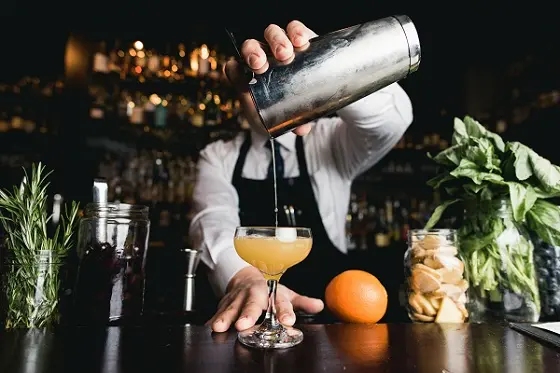Hong Kong’s cocktail scene is thriving like never before, with the city’s top bars frequently making appearances on Asia’s 50 Best Bars list. This vibrant cocktail culture is characterized by the spectacle of mixologists crafting drinks in front of eager patrons. However, a new trend is shaking things up: pre-batching cocktails. While traditionally seen as a compromise on quality, pre-batching is now becoming a staple in Hong Kong’s high-volume bars. But does preparing cocktails in advance sacrifice the magic of mixology?
Pre-batching, or preparing cocktails in advance, is gaining traction among Hong Kong’s top bars for its efficiency and consistency. Agung Prabowo, founder of Penicillin, notes that pre-batching is crucial for the bar’s operations, which prepares 75% of its menu ahead of time. “Pre-batching allows us to serve more guests consistently and quickly,” Prabowo explains. “It also offers sustainability benefits by reducing waste and conserving resources.”
At Bar Leone, pre-batching enables the bar to manage high volumes efficiently. “Pre-batching ensures that cocktails are served at the right temperature and dilution,” says Antinori from Bar Leone. “Without it, serving a room full of guests with cocktails taking 15 minutes each would be impractical.”
The primary advantage of pre-batching is the time saved during service. Alex Ko of Tastings Group emphasizes that pre-batching allows bartenders to focus on other aspects of the guest experience, such as elaborate presentations or engaging with patrons. “The goal is to save time in one area to enhance another,” Ko notes. His work with Drinks by Design involves scaling up processes and optimizing workflows to handle large batches efficiently.
For example, Ko’s team uses large equipment for batching, which requires careful consideration of techniques and ratios. “When dealing with large quantities, you need to experiment with techniques to ensure quality,” Ko explains.
Despite the benefits, pre-batching requires meticulous attention to detail to preserve quality. Fresh ingredients like lime juice are often not pre-batched due to their short shelf life. Antinori at Bar Leone avoids pre-batching certain syrups like orgeat and grenadine, which can separate or degrade over time.
Scaling recipes for large batches also requires precise measurements. “The flavor profiles of ingredients can change when scaled up,” Antinori warns. “Bitter agents, for instance, may become more pronounced in larger batches, so accuracy is crucial.”
Pre-batching presents logistical challenges, particularly in space-constrained environments like Hong Kong’s bars. Ko points out that storage space for pre-batched cocktails is a significant consideration. “In Hong Kong, every square inch of fridge space is valuable,” he says. Bars must balance the need for storage with other operational needs.
Antinori from Bar Leone echoes this sentiment, noting that creating additional storage space for pre-batching often means sacrificing seating. “It’s a trade-off, but it allows for a more efficient operation in the long run.”
Pre-batching is not a new concept. Bottled cocktails date back to the 1930s, and Tony Conigliaro’s revival of bottled cocktails in the early 2000s spurred renewed interest in pre-batching. “The focus was on rejecting mass-produced concentrates and emphasizing fresh ingredients,” Ko explains.
Antinori recalls his experiences with batching at The American Bar in London, where he saw firsthand how pre-batching could enhance service without compromising quality. “As long as the attention to detail is maintained, pre-batching can coexist with high standards,” he says.
So, will pre-batching dominate the cocktail scene? Prabowo believes that while pre-batching will likely become more common, there will always be a place for made-to-order cocktails. “Pre-batching offers many advantages, but the demand for freshly made drinks will persist,” he says.
Antinori concurs, suggesting that pre-batching can complement a bar’s identity but is not a requirement for success. “If your bar has a strong focus on theatrical presentations, pre-batching may not be essential,” he concludes. “But for bars focusing on consistency and efficiency, it can be a valuable tool.”
As the cocktail culture in Hong Kong continues to evolve, pre-batching represents a practical solution for high-volume bars while maintaining a commitment to quality. The key is finding the right balance between efficiency and craftsmanship to deliver exceptional experiences to patrons.


